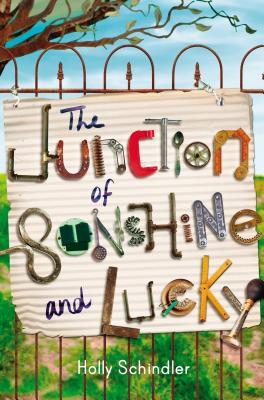 Agosin, Marjorie. I Lived on Butterfly Hill
Agosin, Marjorie. I Lived on Butterfly HillMarch 4th 2014 by Atheneum Books for Young Readers
Celeste lives in Valparaiso, Chile after1967. Her parents are doctors, and her Viennese grandmother, who survived the Holocaust, lives with them. Family retainer Delfina does the cooking and cleaning, but is part of the family as well. When the harbor is filled with warships and President Alarcon is assasinated, things start to change. Fewer and fewer students go to school, girls have to wear skirts and put their hair up in buns, and Celeste's parents fear for the family's safety. They knew Alarcon and supported his initiatives to help the poor, so they go into hiding and send Celeste to live with her aunt Graciela in Maine. It's hard for her to get used to the isolated life in the cold, but she makes friend with Kim, a Korean refugee, and eventually gets used to life with her aunt, even though she misses her parents and fears for their safety. When the General/dictator who has taken over Chile is killed, Celeste goes back to her grandmother. Her parents are still missing, and with the help of her friend Cristobal, she goes looking for them so that she can settle back into her old life.
Strengths: I can't think of any other middle grade novels set in Chile, so it's great to have this one based on the author's childhood. There are lots of good details about daily life, many involving food. The feeling of not fitting in to her school in Maine may resonate with many children. The Lee White illustrations are absolutely brilliant, since they mimic so perfectly the style of the 1960s.
Weaknesses: Stylistically, this is rather long (450 pages) and slow paced for middle school readers, but I would buy it. However, I really wanted some historical notes on this. Even though specific names are given for the leaders, I couldn't find enough information to pin this down to a particular year. Since the Beatles' Strawberry Fields is mentioned as playing, I know it's after 1967. In the book, there is a president Alarcon who is assassinated, and a Monica Espinoza who is elected after Celeste comes back, but I can't find these people mentioned in the encyclopedia, so I'm very confused. There is a Eduardo Frei Montalva who sounds like Alarcon, and the dictator sounds like Pinochet, but he would have been in power for a longer time.
Are these made up leaders? Why can't I find information about them? I also didn't have any luck finding contact information for the author or editor, so I am very confused. Will wait to purchase until I can confirm historical events.
 Schindler, Holly. The Junction of Sunshine and Lucky
Schindler, Holly. The Junction of Sunshine and LuckyFebruary 6th 2014 by Dial
August Walter (or Augie) is being raised by HER grandfather, since her mother abandoned her as an infant. Her grandfather is a trash hauler, making money by selling people's castoffs to the junk year, a career which Augie thinks is pretty cool until her school is closed and she and her friends are transferred to a spiffy, newer school. Snotty Victoria gives Augie a hard time AND steals her best friend. Not only that, but Victoria's father is on the town council, which is determined to condemn Augie's neighborhood, Serendipity Place, in order to tear it down and built a rec center. When the neighbors are served with notices that they need to improve their properties, they do so with gusto. Augie and her grandfather decorate their property with vibrant sculptures made out of old toasters and other cast offs, and paint the house all sorts of different colors, and then are surprised when the town council thinks that this has made the property worse. However, the son of one of the residents is an art dealer who thinks the sculptures are folk art and arranges to have people buy them in order to raise money to repair the neighborhood church and the city council fines.
Strengths: This is one of those quirky books that teachers love and which I just don't. If you liked Hound Dog True or One Day and One Amazing Morning on Orange Street, definitely pick this up. Heck, this has a good chance of winning a Newbery.
Weaknesses: I could not stop thinking that if Augie and her grandfather lived across the street from me, this would be a BAD THING. This could be because I once had neighbors somewhat like this, and I ended up moving rather than watching them construct things in their yard. I found myself rooting for Victoria, her father, and the evil town council. A rec center sounds better than a blighted neighborhood. The woman with the warped porch that looked like a smile-- putting up awnings that look like eybrows does not make your porch safer! So, admittedly, I got really stuck on this aspect of the book and it interfered with my enjoyment.
This was fairly new when I wrote this, so there weren't a ton of other reviews posted, but here were some more positive ones.
Innocence Walker
Paperback Treasures
Word Spelunking
Ms. Yingling--I look for historical notes in historical fiction as well, and I'm disappointed when there are none. I just read Serafina's Promise, which I thought was exceptional, but I wanted a note on the Duvalier dictatorship and basic information on the earthquake. I can look it up, of course, and I know basic information about both, but I always appreciate a small essay or so. Ann Burg did include a glossary (with pronunciation) of the Creole words, so not sure why there wasn't an afterword or anything like that. Oh, well.
ReplyDelete